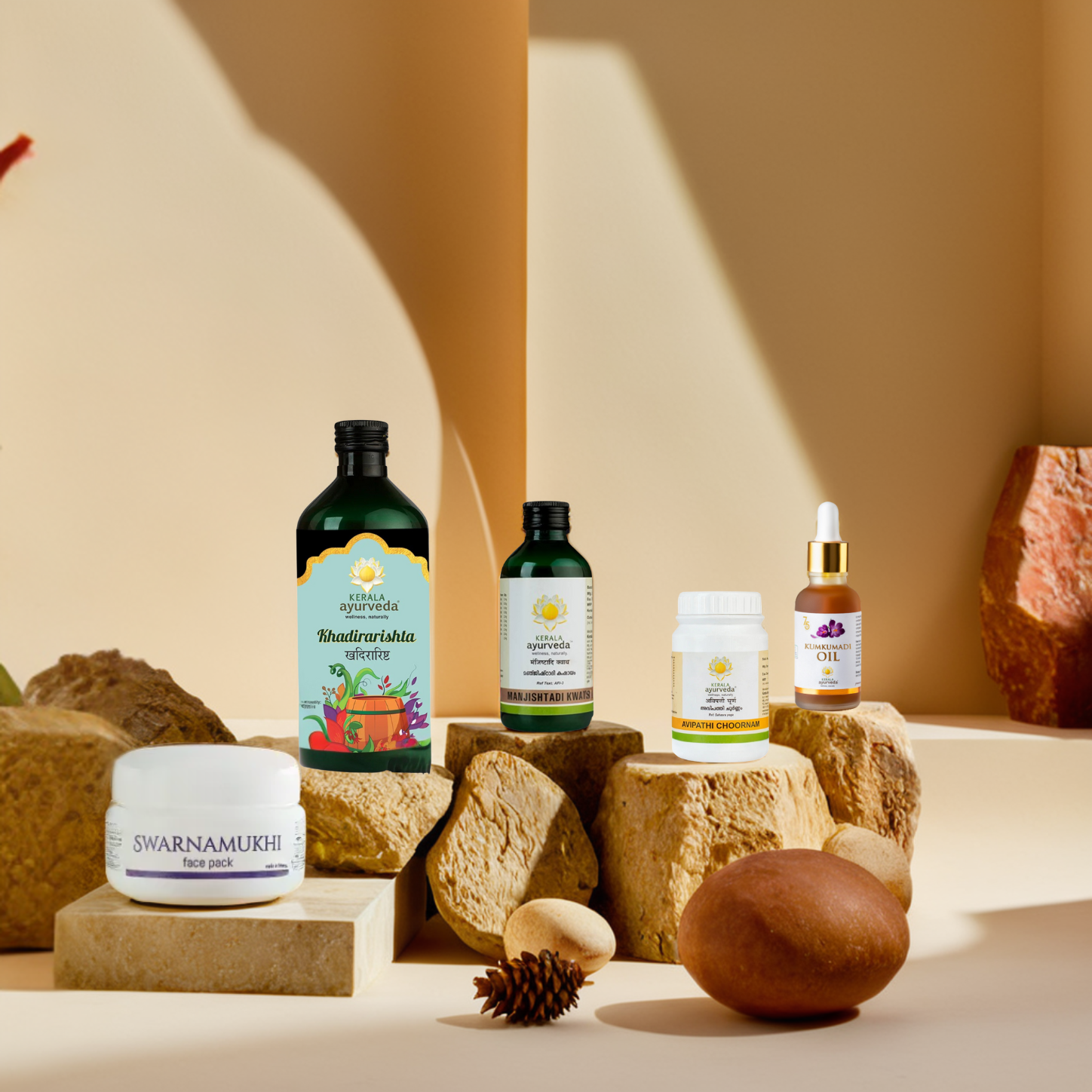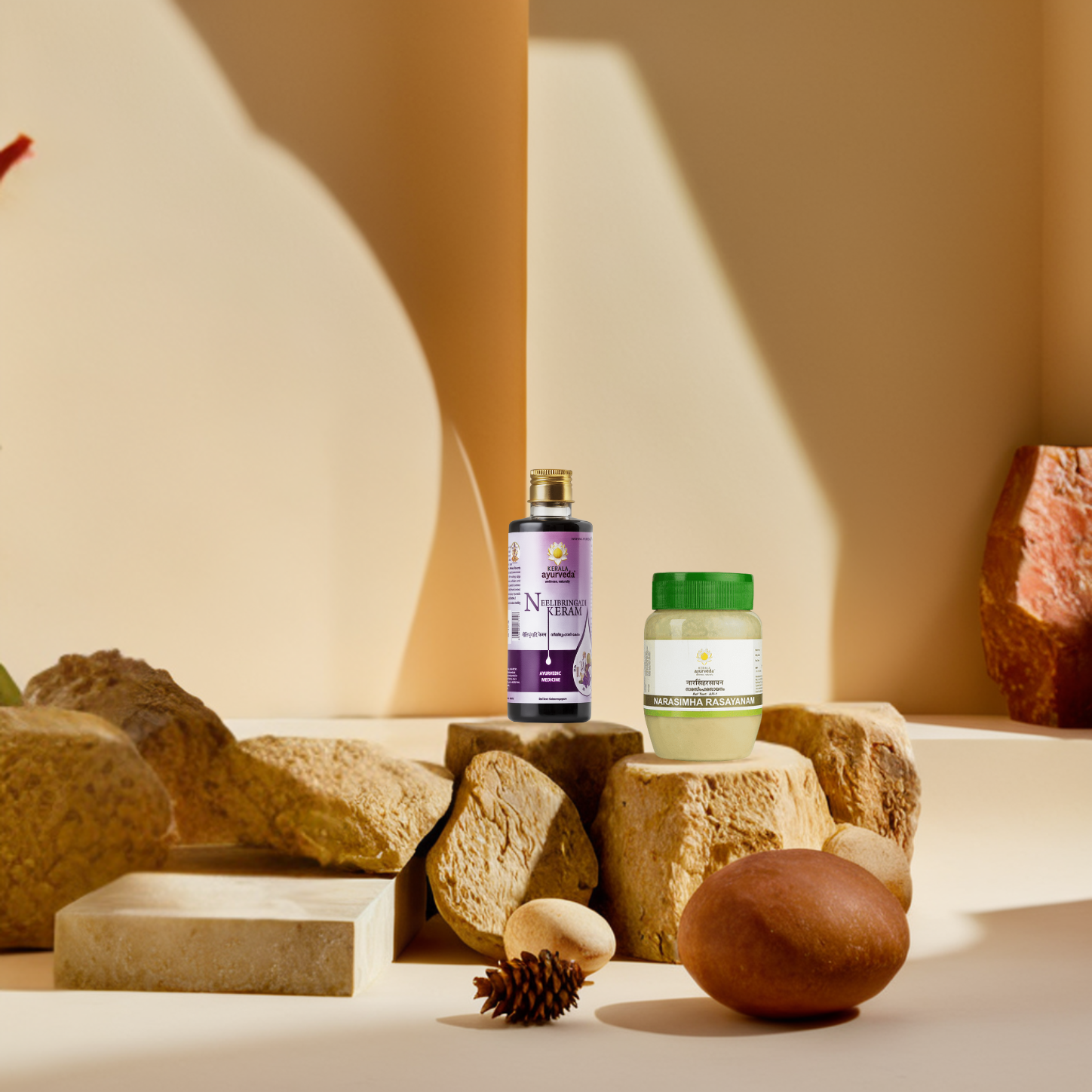Are you always the first one in your friend circle or family to catch a cold? Do you have more allergies than hobbies? Are you sick and tired of calling in sick at work every Monday? If the answer is a resounding yes, it’s highly likely that you have relatively weak immunity. Falling sick gets you all the attention from people who care about you, and we know that feeling is great. But it can have a negative impact on your career and other areas of life. When you are down with a common cold or fever, you lose at least 2-3 productive days of your life for nothing.
The quality of our lives and our health is connected to our nourishment which does not only refer to the food we eat.
Rather, it is the summation of various decisions we make from the moment we wake up to the time when we go to rest. It is the translation of our habits, good and bad, combined. This nourishment helps build our immunity.
In the last two years, we saw the ill-effects that Covid-19 brought over the world. Plus, we also realised how important it is to strengthen our immune system. Those who could stand firm, fight, and even help others even during the pandemic were the ones who nourished their bodies, building that much-needed immunity.
If you have been asking yourself how to increase immunity at home, here is a guide for you.
What is the Immune System, and why is it Important?
How to improve immunity in Adults?
In simple terms, the immune system is a network of cells and organs in our body, responsible for shielding us from any external bacterias and viruses. This system logs and records the memory of every germ our body has received and fought, so if there is a similar attack again, it remembers how to protect us from that.
As kids, our caregivers provide us with proper nutrition to strengthen this crucial system but become weaker if we start neglecting it as we grow up. This is why immunity in adulthood becomes a crucial responsibility for our well being.
Also read: Types of Immunity in Human Body
What affects our immunity negatively?
In the fast-paced lives that we live today, it has become rather organic to fall prey to habits that might negatively affect us in the long run. Not building a healthy routine due to the unavailability of time are habits that possibly make our cores weaker.
Let’s look at such habits before moving on to how you can eliminate them.
-
Imbalanced Diet: Looking at our calendars these days, we can say that we generally have busy schedules. In the middle of these schedules, we may often miss meals here and there. However, a lot of times, skipping meals or resorting to fast food for a ‘quick bite’ becomes a long-term habit.
This impacts our physical nutrition and our mental health, ultimately weakening our immune system. If you are wondering how to improve immune system, make the shift to a healthier diet today.
-
Alcohol Consumption: It is global knowledge that alcohol as a substance is harmful to the human body. It weakens not only the liver but also the functioning of the brain through intoxication. And while we might not see immediate effects, in the long run, alcohol may impair immune system cells, making it hard to fight foreign bodies.
-
High Stress: The infamous stress hormone Cortisol is known to reduce the immune system’s capability to fight off antigens. In the last two years, we have witnessed substantial changes in our daily routines, right from lockdowns preventing our gym routines to working from home preventing us from meeting our friends at work. Moreover, we have been forced to adapt to a sudden turnaround in everything we had grown habitual of. And all of these changes have been quite stressful, to say the least. Thus, it is understandable that we need to observe mindfulness and weaving stress-relieving activities in our daily lives has become paramount.
-
Also read: Stress Management in Ayurveda: Natural Coping Strategies for Stress
-
Irregular sleep patterns: The rise of remote work culture has brought about the elimination of work-life boundaries and balance. Furthermore, it has also increased our average screen time. When everything from our work to entertainment got limited to digital media, it was natural for circadian rhythms to be disrupted as well. However, the ill effects of irregular sleep patterns have extended to an overall disturbance in our physical health.
-
Insufficient water intake: Even if we have more recent and globally applicable reasons for all the challenges mentioned above, drinking enough water for good health and immunity is ubiquitous knowledge. Clearing harmful toxins from the body, keeping the blood clean, staying hydrated, and of course, supple skin are some of the benefits of drinking more water.
What is Your Body Type:
The Sanskrit translation for immunity is Vyadhikshamatwa, and Ayurveda recognises the concept of immunity building through several internal and external mechanisms.
When we talk about the pearls of wisdom that Ayurveda has handed to us, one of the most crucial concepts is humans’ holistic well-being. In fact, the state of ‘good health’ in Ayurveda cannot be dissipated to the state of being ‘not ill’. Instead, the concept of health constitutes a being’s entire physical, mental and spiritual balance and peace.
To break it down further, Ayurveda suggests that every being is built of 3 kinds of energies known as Tridosha namely Vata, Pitta, and Kapha. These energies and their combinations build an individual’s compatibility with certain practices for immunity building.
All humans and their bodies are different. Thus, we need to understand how our bodies work, how they respond to different foods and habits so we can adopt routines that are healthier for us.
The Tridosha, together, guide our body, mind and soul and help us achieve knowledge that we can practice in our everyday lives for a healthier living. Whenever these energies are well balanced, we experience a holistic state of good health. And certain habits can help us stay in that state longer through cell-mediated immunity building and tell us how to boost immunity at home.
Vata Dosha: Vata Dosha predominantly impacts the nervous system and the physical movements of our bodies.
People with predominant Vata tend to have light bodybuilds, with a thin structure. They are quick in mental capabilities and can be seen as hyperactive. Thus, they are prone to getting tired fast.
When this Dosha is balanced, an individual feels energetic, motivated and active. However, with a shift in the optimum levels, they can experience restlessness, hypertension and weakness.
How to remove excess vata from the body?
To keep Vata Dosha levels optimised, one should consume hot soup, stews, and other fluids below room temperature.
You should also avoid oily or undercooked meals. Furthermore, the one rule to remove excess Vata from the body is to choose warmth over cold, food, clothes, fluids. The goal should be to alleviate the digestive system and improve immunity through a healthy and fulfilling diet of proteins, carbohydrates and vegetables.
Pitta Dosha: Pitta Dosha predominantly dictates our metabolism and how well we can digest our food. Individuals with Pitta nature tend to have faster metabolisms. Their normal body temperatures also tend to be higher than average. They sweat a lot and hence are likely to require higher fluid intakes as well.
When this dosha strays out of balance, individuals can expect heartburn, diarrhoea, inflammation in the body or skin problems, or problems involving the liver and gallbladder. For individuals suffering from Pitta Dosha, mild sweet spices such as cinnamon, mint and dill are considered beneficial.
Individuals with Pitta Dosha dominance are highly likely to consume food in excess. Thus, it becomes crucial for people with this dosha to pay attention to moderation in eating.
Kapha Dosha: The function of Kapha is to provide our bodies with immunity, vigour and vitality. It also ensures the strength of our body structures. People with predominant Kapha natures may often come off as sluggish in their activity. They have stable and average body builds, and they can have soft but oily skin.
To optimise Kapha levels, Ayurveda suggests an active lifestyle consisting of regular exercise and engagement in both spiritual, as well as physical activities. A shift in the optimum levels of Kapha dosha can potentially lead to breathing problems, heart diseases, weight gain issues and even psychological issues like depression.
How to Boost Immunity at Home: Remedies Through Diet
Ahara or diet in Ayurveda is regarded as one of the three fundamental pillars of life (the others being a healthy intimate life and sleep pattern). Not only this, in our ancient texts, effects of the diet include taste, therapeutic qualities, individual compatibilities, etc.
All of these factors in harmony build the immune system. Naturally, when we talk about a ‘balanced diet’, a few determinants beyond the basic vitamins and proteins have to be considered for overall progress.
Furthermore, the ayurvedic texts tell us about the Prakriti of an individual - the physiological, physical and psychological characteristics. An individual’s Prakriti also dictates if they are predominantly Vata, Pitta or Kapha. These attributes together decide what kind of diet would constitute a balanced diet for a person.It is recommended that you try home remedies to improve immunity based on your body’s natural constitution.
Vata Prakriti
-
Taste: People with predominantly Vata Prakriti are advised to include sweet, salty and sour tastes in their diets. At the same time, they should avoid bitter or astringent tastes.
-
Grains: Among grains, the cereals favourable for them are rice, ragi, wheat, and oats. Grains such as corn, maize and white bread are not advised.
-
Pulses: Legumes like soybean, green gram and split black bean are beneficial for them. However, horse gram, peas and red kidney beans are not advised.
-
Vegetables: Root vegetables like beets, radishes, sweet potato, onions, and green vegetables like capsicum and green beans are good for them. But, leafy greens, okra, cabbage, broccoli etc., are not recommended.
-
Fruits: Citrus fruits, berries, stone fruits, bananas, pineapples are recommended but, dry fruits, raw apples, sour melons should be avoided.
Pitta Prakriti
-
Taste: For people with predominantly Pitta Prakriti, it is advisable to include bitter, sweet and astringent tastes in their meals. However, sour and salty tastes are deemed undesirable for them.
-
Grains: The more favourable grains for these people are rice, oats, barley and wheat. On the other hand, the grains they should avoid consist of millet, ragi and corn.
-
Pulses: The pulses good for them are red split gram, green gram, and soybean. But they should avoid horse gram or red kidney beans.
-
Vegetables: The favourable vegetables are Cauliflower, cabbage, broccoli, turnip, peas, potato, okra, leafy greens, cucumber, etc. The vegetables that should be avoided are onion, garlic, brinjal, capsicum and mushrooms.
-
Fruits: The fruits that can help Pitta Prakriti people are sweet orange, mango, guava, papaya, apple, melons, pineapple.
Kapha Prakriti
-
Taste: For people with predominantly Kapha Prakriti, it is advisable to include pungent, bitter and astringent tastes in their meals. However, meals with salty, sweet and sour tastes are not recommended.
-
Grains: The favourable grains for them are rice, oats, corn, and barley. And, grains like wheat and white rice are not advised.
-
Pulses: Their favourable pulses include split red gram, split black gram, peas, red kidney beans. And soy products are not recommended for them.
-
Vegetables: In terms of vegetables, they are advised to have a vegetable diet as they are prone to obesity. And the most favourable ones are leafy greens, brinjal, bitter gourd, cabbage family, onions, mushrooms, okra, etc.
-
Fruits: The fruits best for them are apple, pear, berries, figs, peaches, prunes. And fruits such as bananas, grapes, avocados, lemons, and oranges can also be helpful.
Home Remedies to Boost Immunity
Our habits can lead to an imbalanced core, and it becomes imperative for us to pay attention to any malfunctioning.
Today, we live in a world driven by science and scientific innovations. For our physical and mental requirements, we have a variety of products and artificial supplements claiming to help build our immune system quickly and effectively. Not to mention that most of these artificial add-ons come with their share of side effects and even a possibility of growing dependency. Both of which can be harmful in the long run and hence do not provide very sustainable solutions to our modern-day needs.
We also have a myriad of beneficial Ayurvedic Superfoods available at home as well. Some of which are as follows. These tips can also be an answer to the common question of how to increase immunity in pregnancy.
-
Turmeric: Haldi has been an integral part of every Indian household for centuries. Indians learnt very early on that turmeric consumed in warm milk, water, or even as a standalone edible is much better than antibiotics. This is so because this magic herb consists of many anti-fungal, antiviral and antibacterial properties. And even though the US FDA has not associated turmeric with any bad effects of its over-consumption, the recommended amount is 500-1000 mg per day.Turmeric contains a compound called curcumin, which is responsible for the yellow colour and accounts for turmeric’s antioxidant and anti-inflammatory properties. Not only does it improve immunity but also lowers the risk of cancer and heart disease.
-
Ginger: Much like turmeric, ginger has also been recognized and widely used in Asian cuisines for its anti-inflammatory properties. Dried ginger works wonders for problems like migraines and joint pains. And in winters, it helps in keeping the body’s core warm to fight viral infections like the common cold.
-
Amla: Popularly called the Indian Gooseberry, this rich source of vitamin C has powerful antioxidants that work wonders as detoxifying agents. In fact, it is an ideal add-on to the diet for people who are trying to reduce weight. Furthermore, its micronutrients are also beneficial for improving eyesight, digestion and for people with diabetes.t is one of the best ayurvedic home remedies to increase immunity. It is easily available with vegetable vendors and can be consumed raw, processed or preserved. Apart from boosting immunity, Amla offers various skin and hair benefits as well.
-
Tulsi: Besides the deep mythological importance of tulsi in many Asian scriptures, it is also an extremely beneficial medicinal herb. Also known as holy basil, tulsi is a revered herb in Ayurveda tradition. It is usually placed on a pedestal in the middle of the courtyard and worshipped for its various healing properties. The plant must be protected from direct sunlight during summers and its leaves should be consumed on an empty stomach in the morning. It is one of the most effective Ayurvedic remedies to boost the immune system and prevent digestive disorders. It has been known to help in respiratory problems and during the Covid pandemic, it was a commonly suggested herb to consume. Its other benefits include stress reduction and balancing blood pressure, help for gastrointestinal problems, and as a natural immunity booster. It also has anti-cancer properties. As for consumption, it can be eaten raw, or leaves can be put into drinking water.
-
Ghee: Ghee or clarified butter is considered a ‘healthy fat’. For people trying to adopt a healthy lifestyle refraining from using processed fats, Ghee is an exception. It is packed with nutrients like omega-3, omega-9, vitamin K, A, and E. So naturally, it not only promotes healthy digestion but also improves hair and skin. And while it is best used in moderation, it is still a powerful addition to make a meal whole.
In a short amount of time, with the unprecedented outbreak of Coronavirus, we have witnessed how crucial it is to make our health and immunity a priority. We need to start noticing and understanding the language of our physical health - what foods, habits, ingredients make us active and help us in feeling healthy from the inside. Because only when we understand our own metabolism, will we be able to adopt healthier habits best suited for us and build stronger immunity.
Apart from consuming foods that increase immunity and stamina, it is also important to engage in physical activities, such as exercise, yoga and meditation to ensure holistic wellbeing.




